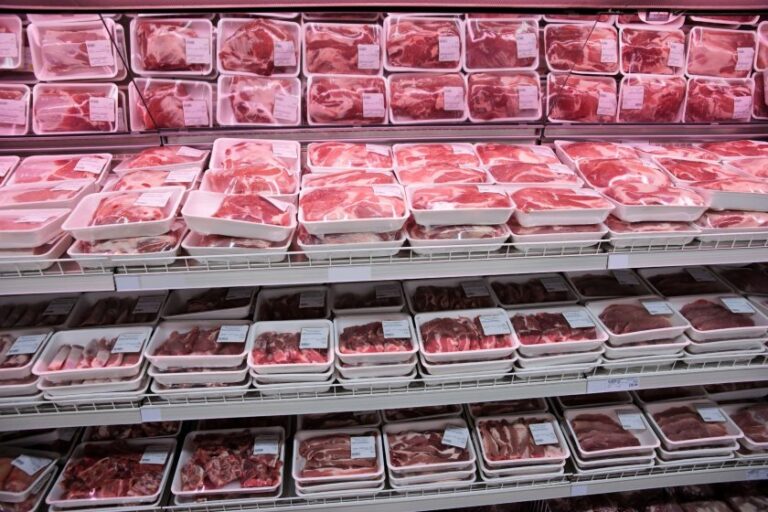NFU Scotland has raised the alarm over a growing trend of UK supermarkets stocking imported chicken and beef — warning the move is eroding public trust and undermining Scottish farmers.
Retailers including Morrisons, Asda and Sainsbury’s have come under fire after reports emerged of increased imports appearing on shelves, despite longstanding commitments to source locally.
While volumes of imported meat remain relatively small, the union says the shift sets a dangerous precedent, particularly as public support for home-grown produce remains high.
Recent research from Quality Meat Scotland found 90% of red meat shoppers would still choose Scottish beef, lamb, or pork even if imports were 30% cheaper — a preference the industry argues is being quietly undermined.
“We are angry and deeply disappointed,” said NFU Scotland vice president, Robert Neill. “This is a slap in the face to Scottish producers and a betrayal of the public who expect to see local food on local shelves.
“Scottish farmers are being undercut by a system that rewards the lowest price, not the highest standards.”
The warning coincides with the Royal Highland Show, where the industry pressing ministers and retail leaders for stronger action to protect Scottish farming.
NFU Scotland’s long-running ShelfWatch campaign has consistently flagged gaps between retailer rhetoric and sourcing reality.
It reports that across the eight major supermarkets, 20% of own-label red meat products are still imported.
While some chains show greater commitment to local sourcing, it is feared the gap could widen unless immediate steps are taken to support domestic producers.
NFU Scotland is calling for the introduction of mandatory country-of-origin labelling across all food products, including processed foods and those in the food service sector.
The union also calls for retailers to adopt a ‘Scottish First’ sourcing policy to reduce dependence on imports.
Mr Neill stressed that the issue goes far beyond policy — it’s about protecting the livelihoods of farming families and securing a future for the next generation to continue their family traditions.
“If supermarkets want to claim they support British farming, they need to prove it where it counts: at the shelf and through the supply chain so that our farmers and growers can continue to feed the nation.”


